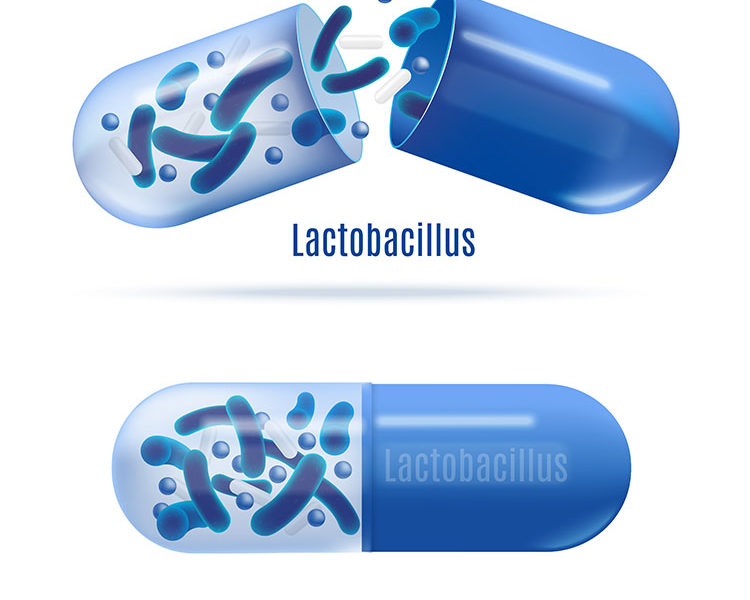
All You Need to Know About Bifidobacterium
Probiotics, the live bacteria and yeasts that exist in or can be added to consumable products to offer extra nutritional value, are experiencing a surge in popularity. Experts expect the global probiotics market size to exceed USD 3 billion by 2024. The North American probiotics market will likely experience growth of over 6% by 2024. Probiotics are typically available in specific food or dietary supplements for humans and animals. They are perhaps most commonly recognized for their use in probiotic yogurt drinks which advertise digestive benefits to consumers. Manufacturers can produce different varieties of cultivated bacteria and yeasts. Consumers can either directly add these to food or consume them as a supplement. One of these varieties is Bifidobacterium, a genus of bacteria that is present in the gastrointestinal tract and mouth of all mammals, including humans. The plural term, Bifidobacteria, refers to either multiple species or multiple organisms within the Bifidobacterium genus. Strains of bacteria that include “Bifidus” in their name have become particularly recognizable because of their frequent use in television advertisements. These are typically marketing names for strains of Bifidobacteria such as the species Bifidobacterium bifidum. This species, like others in the Bifidobacterium genus, can offer health benefits to consumers. Before adding them to your inventory, however, it is important to look at what we know about Bifidobacteria.
BIFIDOBACTERIUM IN MAMMALS
The intestines of mammals are home to an entire ecosystem of bacteria and other microorganisms that evolved with their host and are essential to proper intestinal function. These gastrointestinal microbiotas represent the highest concentrated variety of microorganisms present in the bodies of mammals.
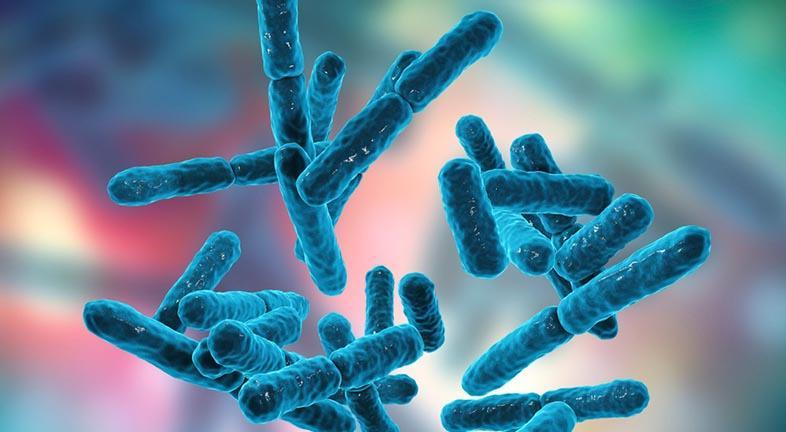 In humans, they can contribute to health by fermenting dietary fibers into short-chain fatty acids, and play a role in synthesizing vitamin B and vitamin K. Bifidobacteria are one of the bacteria genera found in mammal intestines. They are nonmotile, which means they cannot move independently. Their primary role is to remain in the gastrointestinal tract. They are also anaerobic, which means they do not require oxygen for growth. Anaerobic respiration is typical of organisms that spend their entire lives within the intestines.
In humans, they can contribute to health by fermenting dietary fibers into short-chain fatty acids, and play a role in synthesizing vitamin B and vitamin K. Bifidobacteria are one of the bacteria genera found in mammal intestines. They are nonmotile, which means they cannot move independently. Their primary role is to remain in the gastrointestinal tract. They are also anaerobic, which means they do not require oxygen for growth. Anaerobic respiration is typical of organisms that spend their entire lives within the intestines.
THE ROLE OF BIFIDOBACTERIA
Bifidobacteria play a key role in homeostasis, the maintenance of consistent conditions within the body. Studies have linked this to their ability to produce short-chain fatty acids. Short-chain fatty acids can provide an energy source for muscles and kidneys, as well as the heart and brain. These molecules are the products of bacterial fermentation in the gut. Humans require these microbiota populations for good health. Scientists continue to assess the role that Bifidobacteria plays in maintaining human health. Possessing an abnormal microbiota has been linked to autism and psychiatric disorders, and although further testing is required to prove this association, it is a topic that has come into focus for health scientists in recent years. For example, we are now aware that our intestines are intricately linked to our psychology. One study demonstrated a marked change in the intestinal flora of infant rhesus monkeys that had been separated from their mothers. This suggests that “emotional reactions to disruption of the mother-infant bond may increase vulnerability to disease.”
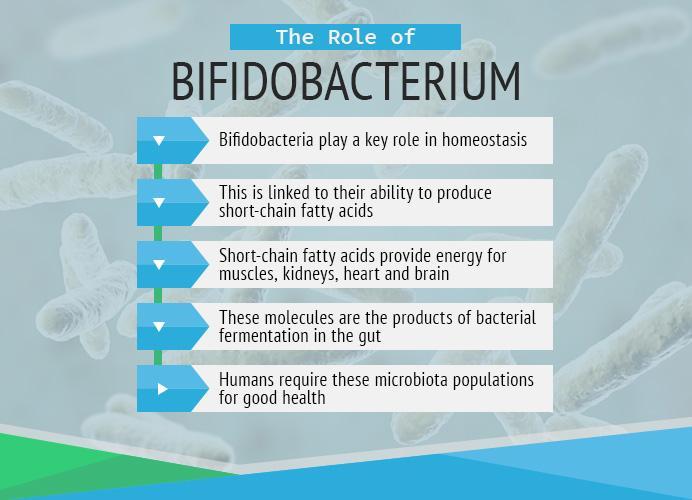 This contributes to an increasing body of evidence that places importance on the maintenance of a healthy gastrointestinal tract. Stable populations of Bifidobacteria and other microbiota are therefore imperative for overall health. There are specialized diets designed to help an individual either lose weight or gain muscle. These often focus on calorie-counting, protein intake or acceptable food types. While it would benefit society as a whole to become more health aware, it is equally vital that dietitians and nutritionists do not neglect gastrointestinal microbiota as an important aspect of a healthy lifestyle. Furthermore, bacteria populations in the body can decrease after bouts of diarrhea or during and after the consumption of antibiotics. In such cases, the body must re-cultivate bacterial populations, which can take time. Reductions in Bifidobacteria and other microorganisms in the gut can negatively affect both digestion and psychology.
This contributes to an increasing body of evidence that places importance on the maintenance of a healthy gastrointestinal tract. Stable populations of Bifidobacteria and other microbiota are therefore imperative for overall health. There are specialized diets designed to help an individual either lose weight or gain muscle. These often focus on calorie-counting, protein intake or acceptable food types. While it would benefit society as a whole to become more health aware, it is equally vital that dietitians and nutritionists do not neglect gastrointestinal microbiota as an important aspect of a healthy lifestyle. Furthermore, bacteria populations in the body can decrease after bouts of diarrhea or during and after the consumption of antibiotics. In such cases, the body must re-cultivate bacterial populations, which can take time. Reductions in Bifidobacteria and other microorganisms in the gut can negatively affect both digestion and psychology.
PROBIOTIC SOURCES FOR HUMANS
Although humans naturally cultivate Bifidobacteria, this process can take time. Populations of bacteria can also struggle to replenish themselves organically. When gastrointestinal microbiota is reduced, studies have shown that animals are more likely to gain weight and potentially develop obesity. A 2018 study suggested that outside sources of probiotics are vital because of the common use of antibiotics, which can significantly reduce populations of helpful bacteria. This study looked at the gut microbiomes of mice and provided further evidence as to the importance of probiotics in maintaining health. Consumers are becoming increasingly aware of the workings of the human body and how to maintain a happy and healthy lifestyle. The weight of evidence behind the importance of Bifidobacteria and other gastrointestinal microbiota means consumers are going to continue to gain an increased appetite for the probiotic products that can stabilize their intestinal function. The following are some common probiotic products that are available for purchase to help aid homeostasis in the intestines:
Yogurt

Yogurt is made of milk that has been fermented by bacteria that consume lactose, including Bifidobacteria. It is the most well-known probiotic product because it naturally contains live bacteria. Yogurt manufacturers produce many probiotic enriched yogurt drinks by adding a probiotic blend to the existing yogurt culture. This increases the nutritional value of the drink and offers consumers a product that adds healthy bacteria to their gut. Many doctors recommend consuming natural yogurt or probiotic yogurt drinks after the use of antibiotics or a bout of diarrhea. This restores natural bacteria populations in the gastrointestinal tract. Some yogurts do not contain live bacteria because manufacturers sometimes pasteurize yogurt to extend its shelf life. Although this yogurt might satisfy a craving, it lacks the probiotic benefit of other yogurt products.
Cheese
Cheese is another natural source of probiotics. Hard cheeses such as Cheddar have long ripening times which allow bacteria to flourish. Bifidobacteria survive well in both cheddar and gouda cheeses. Cheese is far more ubiquitous in most western societies than yogurt and presents a greater opportunity for introducing probiotics into regular diets. In 2016, the per capita consumption of yogurt in the U.S. was 13.7 pounds, compared to the 38.5 pounds of cheese that Americans were consuming. This offers the potential for modifying and improving health across the U.S. with probiotics, and it shows there is a huge possible market for probiotic cheeses. One study indicates cheese may offer a number of intriguing advantages over yogurt for probiotic products. In particular, cheese is less acidic than yogurt and has a high-fat content, but a solid texture. This helps more probiotic ingredients survive the acidity of the stomach and reach the gastrointestinal tract, where they can benefit the consumer.
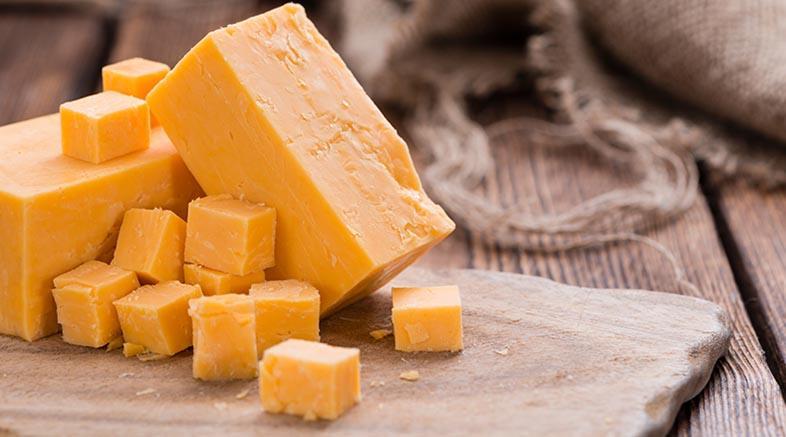 The same study conducted tests to introduce probiotic bacteria to cheddar cheese and assessed their performance during ripening. It concluded that probiotic bacteria could survive well during the process, enabling low-cost manufacture of probiotic cheeses with high levels of viable probiotics in the final product. The study also demonstrated that the probiotics had no negative impact on the flavor, aroma and texture of the cheese. Cheddar cheese in particular has been found to possibly offer a more stable medium for probiotics passing through the gastrointestinal tract.
The same study conducted tests to introduce probiotic bacteria to cheddar cheese and assessed their performance during ripening. It concluded that probiotic bacteria could survive well during the process, enabling low-cost manufacture of probiotic cheeses with high levels of viable probiotics in the final product. The study also demonstrated that the probiotics had no negative impact on the flavor, aroma and texture of the cheese. Cheddar cheese in particular has been found to possibly offer a more stable medium for probiotics passing through the gastrointestinal tract.
Supplements
Many probiotic supplements exist on the market today. These products may help boost the numbers of healthy bacteria, including Bifidobacterium species, in human gastrointestinal tracts. Probiotic supplements are advertised to treat a range of conditions, and there is good evidence that many of these claims are true. For example, probiotics can kill or inhibit the growth of harmful bacteria and prevent antibiotic-associated diarrhea in children who have been prescribed a course of antibiotics. While some view probiotics with skepticism, it is clear these products have value. Many consumers share this opinion, which is reflected by the continued growth in the U.S. probiotics market value. Furthermore, probiotic supplements can shorten bouts of diarrhea, reduce the likelihood of premature babies developing necrotizing enterocolitis, and reduce bloating and flatulence, among other benefits. Supplements are probiotic products that utilize blends of probiotics produced specifically for human gastrointestinal tracts. Probiotic research does not necessarily need to be governed by the same rules that apply to new drugs. This is because they are largely considered safe for all healthy adults, and in the U.S., work is underway to streamline human testing research.
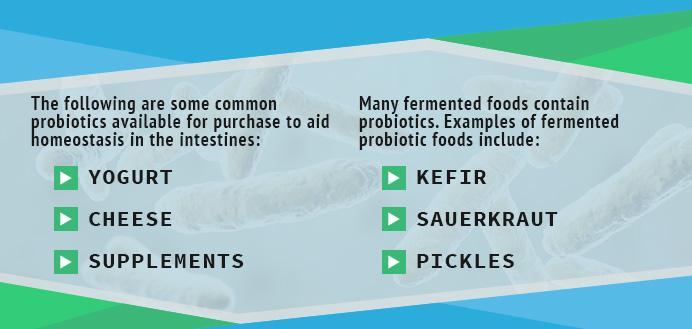
OTHER FOODS AND DRINKS
Many fermented foods contain probiotics and many cultures around the world developed fermented foods and drinks that contain probiotics without being aware of their benefits. Additional examples of fermented probiotic foods include:
- Kefir, a Turkish fermented probiotic milk drink made by adding “kefir grains” to the milk of goats or cows. These grains are not cereal crops but cultures of bacteria and yeast.
- Sauerkraut, a famous German dish that is also popular in many countries across Europe. It consists of fermented cabbage and is rich in vitamins C, B and K. Similar to sauerkraut is Korean Kimchi. Also a fermented cabbage dish, kimchi has a distinctive, spicier flavor and has become increasingly popular in Western countries.
- Pickles are fermented using probiotic bacteria. This is what gives them that strong sour taste. Pickles made with vinegar, however, do not possess the same probiotic qualities as those made using salt water.
BIFIDOBACTERIUM SPECIES
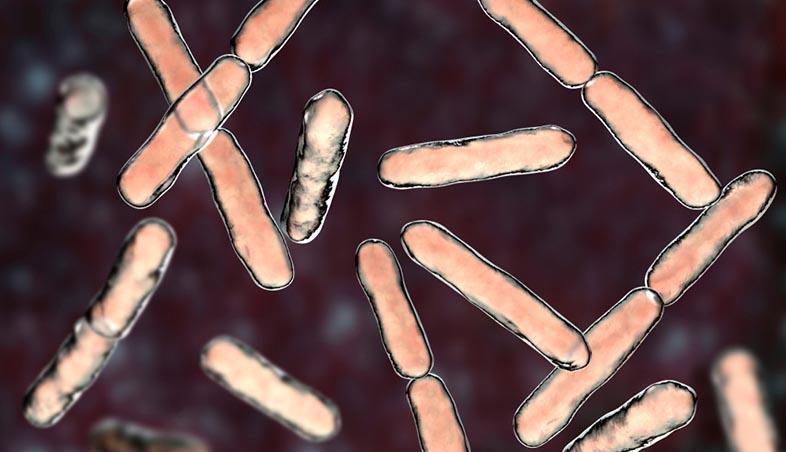 There are many species in the Bifidobacterium genus, most of which are found naturally in mammals. These are two which are prevalent in the manufacture of probiotic products:
There are many species in the Bifidobacterium genus, most of which are found naturally in mammals. These are two which are prevalent in the manufacture of probiotic products:
1. Bifidobacterium longum
Although previously considered three distinct species, B. longum is now considered to be a single species. It plays a substantial role in the human gastrointestinal tract and is one of many Bifidobacterium species that can account for 90 percent of an infant’s gastrointestinal tract bacteria. This number drops drastically to around 3 percent by the time an individual reaches adulthood. Despite this, Bifidobacteria continue to be important for adult digestion. This strain of bacteria can help to manage ulcerative colitis. It is a scavenger that effectively uses a larger variety of nutrients than other Bifidobacteria. This increases its competitiveness among microbiota. The species is important to digestion and the human immune system, where it can shorten and minimize the severity of symptoms associated with the common cold virus.
2. Bifidobacterium bifidum
Bifidobacterium bifidum is a natural probiotic that is also found in the intestines of most mammals, including humans. It is present in the large intestine and frequently used as a probiotic in the development of probiotic products. This species is suitable for use in both food products and dietary supplements. Certain companies have also sought to trademark individual strains and often use them in marketing with unique names created for advertising purposes.
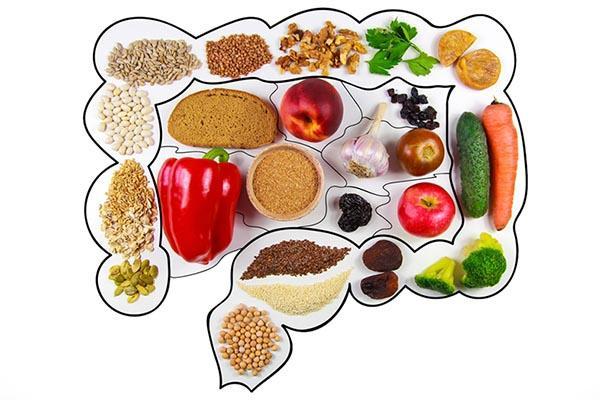
MICROORGANISMS WITH MEGA-POTENTIAL
There is an exciting future ahead for Bifidobacteria and other probiotics as the market continues to grow and research develops concerning new ways that probiotics can benefit humans and animals. Consumers are increasingly aware of how to provide nutrition for their bodies to maintain normal function naturally. It is clear that probiotics may be a vital part of sustaining a healthy gastrointestinal tract. Not only is a healthy gut essential for digestion, but it can also potentially affect an individual’s psychology and other areas of the body. Products that contain probiotics have an edge in marketing to consumers who are recovering from antibiotics, a bout of diarrhea or simply have an interest in maintaining their digestive health. Bifidobacteria and other probiotics thrive in a range of commonly purchased foods. They also don’t adversely impact food quality while adding value to a product at a low cost.


